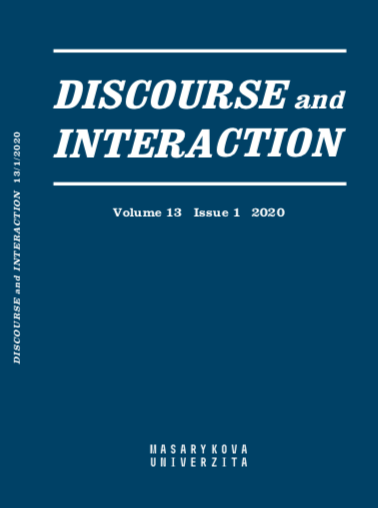Emotive speech acts and their discourse modifications in the literary text
Emotive speech acts and their discourse modifications in the literary text
Author(s): Svitlana Zhabotynska, Nataliia SlyvkaSubject(s): Pragmatics, Stylistics
Published by: Masarykova univerzita nakladatelství
Keywords: expressive speech acts; classification; emotives; positive emotives; modifications; current discourse space; elaboration; extension; questioning; combining
Summary/Abstract: This article focuses on three related theoretical problems: classification of expressive speech acts that till present remains a highly disputable issue of linguistic pragmatics, specificity of emotives as a type of expressives, and the patterns of emotives’ modifications in the current discourse space as it is represented in the literary text. The authors suggest a classification of expressive speech acts built at the intersection of the cognitive (semantic), communicative and semiotic planes that demonstrate distinctions between the classes of behavitives and emotives and between their sub-classes. It is further presumed that emotives, when used in discourse, get modified in accordance with regular patterns compatible with the cognitive operations of elaboration, extension, questioning, and combining described in different cognitive linguistic conceptions. This presumption is confirmed via analysis of positive emotives portrayed in the literary text which, besides the character’s speech proper, describes the other discourse aspects relevant for the illocutionary meaning of a speech act. The patterns of discourse modifications exhibited by positive emotives as a congeneric sub-class are considered to be relevant for the other sub-classes of emotives – negative, bi-polar and ambivalent.
Journal: Discourse and Interaction
- Issue Year: 13/2020
- Issue No: 1
- Page Range: 113-136
- Page Count: 24
- Language: English

